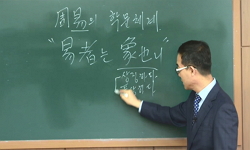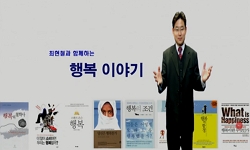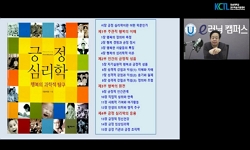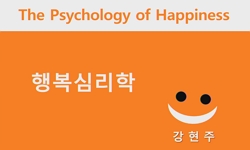무엇이 행복인가에는 이론이 있을 수 있지만 인간이 행복을 추구하는 존재임에 틀림없다. 그러나 인간이 최선을 다한다 할지라도 인간의 힘으로는 통제할 수 없는 어떤 우연적 요소 즉 운이...
http://chineseinput.net/에서 pinyin(병음)방식으로 중국어를 변환할 수 있습니다.
변환된 중국어를 복사하여 사용하시면 됩니다.
- 中文 을 입력하시려면 zhongwen을 입력하시고 space를누르시면됩니다.
- 北京 을 입력하시려면 beijing을 입력하시고 space를 누르시면 됩니다.

행복에 있어 우연의 문제 - 아리스토텔레스와 주역의 비교적 관점을 중심으로 - = The Problem of a Chance in Happiness - from the perspectives or Aristotle and I Ching -
한글로보기https://www.riss.kr/link?id=A107321401
- 저자
- 발행기관
- 학술지명
- 권호사항
-
발행연도
2012
-
작성언어
-
- 주제어
-
등재정보
KCI등재
-
자료형태
학술저널
- 발행기관 URL
-
수록면
117-147(31쪽)
- 제공처
-
0
상세조회 -
0
다운로드
부가정보
국문 초록 (Abstract)
무엇이 행복인가에는 이론이 있을 수 있지만 인간이 행복을 추구하는 존재임에 틀림없다. 그러나 인간이 최선을 다한다 할지라도 인간의 힘으로는 통제할 수 없는 어떤 우연적 요소 즉 운이 작용하고 있음을 알 수 있다.
아리스토텔레스는 행복은 학습과 습관으로 이루어진 영속성을 갖는 유덕한 행동의 결과로 성취될 수 있기에, 덕 있는 사람은 결코 불행해질 수 없다고 말한다. 그러나 그는 행복해지기 위해서는 외적인 여러 가지 선들 즉 친구, 재물, 정치적 배경, 좋은 집안에 태어남, 좋은 자녀를 두는 것, 미모 등이 필요 하다고 말한다. 다시 말해 인간은 자신의 덕에 따른 행동이외에 자신이 선택할 수 없고 단지 운의 결과로 볼 수밖에 없는 외적인 선들이 전제되어야 함을 말한다.
아리스토텔레스에서처럼 구체적으로 명시되어 있지는 않지만 주역에서도 타인의 도움, 때와 상황, 지위, 좋은 집안에 태어나는 것, 자식 등이 행복의 성취에 전제되어야 한다는 것이 암시적으로 나타나고 있다. 실제로 주역에서는 삶에 있어서의 우연성의 문제를 아리스토텔레스보다 더 절실히 인식하고 있다고 볼 수 있다. 왜냐하면 주역에서는 문제 상황에 직면할 때 점을 쳐서 미래를 예견하고 행동 방향을 결정하려 하는데, 이 때 점의 결과는 길흉으로 나타난다. 이렇게 길흉을 따져 본다는 것에는 상당부분 ‘운’이란 우연적인 요소를 감안하고 있음이 명백하기 때문이다.
아리스토텔레스와 주역이 각각 동서양의 문화적 기저를 이루는 사상으로써 드러내는 차이점에도 불구하고 두 사상이 행복 성취에 있어 우연적인 요소, 즉 운의 작용에 대해 인정하고 있는 것은 크게 보아 인간의 실제 삶에 근거한 것이라는 점에서 일치한다고 할 수 있다. 왜냐하면 아리스토텔레스와 주역은 일상의 삶 속에서 인간이 겪는 어려움에 대한 이해와 그것에의 극복 방법을 제시해 준 것으로 보여지기 때문이다. 더 나아가 두 사상은 행복의 성취에는 운이라고 할 수 밖에 없는 우연적인 요소들이 필요하지만 궁극적인 행복은 이런 것들에 좌지우지 되지 않는다는 것을 분명히 하고 있다. 결국 무엇 이 행복인가에는 차이가 있을 수 있지만 행복은 우연적인 요소들까지도 넘어서야 한다는 점을 두 사상은 가르치고 있다. 즉 인간의 의지적인 실천을 전제로 하는 덕 있는 활동을 통해서만 행복은 성취될 수 있다는 점을 아리스토텔레스와 주역 사상 모두에서 확인 할 수 있다.
다국어 초록 (Multilingual Abstract)
Human beings exist in the pursuit of happiness. However there is a matter of luck which man cannot control. In the relation between happiness and luck there are similarities as well as differences in the thoughts of Aristotle and I Ching. First of all...
Human beings exist in the pursuit of happiness. However there is a matter of luck which man cannot control. In the relation between happiness and luck there are similarities as well as differences in the thoughts of Aristotle and I Ching.
First of all, the differences between two thoughts can be summarized as bellow.
(1)In the pursuit of happiness, things which luck controls are clearly defined as external goods in Aristotle while they are acknowledged allusively but more deeply and broadly in I Ching than in Aristotle.
(2)In the thought of Aristotle, the friendship is regarded as the most important one among the external goods. But the friendship does not mean the relation itself alone but rather includes the other external goods such as wealth, political power, good lineage within it. That is, the conditions of friendship are concrete and substantiated. But in the thought of I Ching the range and type of friendship are more broad and various than Aristotle. And most importantly the relations with others are not regarded as the first thing. Rather all relations are subject to the time and the circumstances. It means that the relations should be considered within the correlation of nature and society.
(3)The important of will to achieve happiness is emphasized in the thoughts of both Aristotle and I Ching. However, the situations which good and ill fortunes are played with are more weighed than will itself in the thought of I Ching than of Aristotle.
(4)It seems that the process of achieving happiness is more deterministic in Aristotle than in I Ching when Aristotle claims that that realization is limited only to the context of the polis, even if one's will is more emphasized than in I Ching. Compared to Aristotle, the time and the place as well as a method of the realization of happiness are not deterministic but open and pluralistic in I Ching, even though the process of telling fortunes of I Ching seems very fatalistic.
Despite of these differences, sneaking of the element caused by chance, that is, luck in achieving happiness, seems to reveal that the thoughts of Aristotle and I Ching are based on the real life. Because both of them show the understanding of the difficulties in everyday life and the solution to overcome those. Furthermore it is clear in the thoughts of both of them that pursuing happiness requires luck but happiness can not be swayed by these elements. In conclusion, what happiness is can be different in Aristotle and I Ching but they agree that happiness can be achieved throughout the persistent virtuous actions which overcome even the element of a chance.
동일학술지(권/호) 다른 논문
-
- 한국유교학회
- 조남욱
- 2012
- KCI등재
-
- 한국유교학회
- 이영경 ( Lee Young-kyung )
- 2012
- KCI등재
-
『춘추(春秋)』의 예제(禮制)에 대한 『춘추고징(春秋考徵)』의 분석과 고증 - 상례(喪禮)의 ‘유년칭작(踰年稱爵)’ 원칙을 중심으로 -
- 한국유교학회
- 김동민 ( Kim Dong-min )
- 2012
- KCI등재
-
- 한국유교학회
- 전병욱
- 2012
- KCI등재




 KISS
KISS






